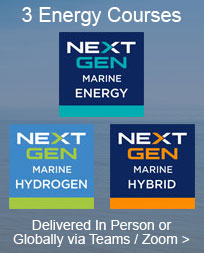James Coker - Account Manager Northern Europe, Seakeeper
James Coker joined the Seakeeper team in June 2017 after spending the previous 6 years working in the marine industry as an engineer specializing in vessel stabilization.
By utilising proven Seakeeper solutions, James focuses on working with boat builders and professional end-users to stabilize vessels. His aim is to improve safety, reduce crew fatigue and increase the amount of time that vessels can spend at sea.
Seakeeper was founded in 2003 for the purpose of researching, developing and marketing motion control devices for boats under 70 meters. The first Seakeeper shipped was in 2008. The company headquarters are in Maryland, USA.
The founders of Seakeeper are Shep McKenney and John Adams. McKenney previously owned Hinckley Yachts and developed their innovative JetStick technology, a fly by wire control system for jet powered boats. Adams, an expert naval architect, previously led Maritime Dynamics, making it the world leader in motion control for high speed ships.
A Stable Vessel is a Safer Vessel
Seakeeper is a computer-controlled gyroscope designed to eliminate up to 95% of boat roll, even at zero or low speeds. Sealed inside a cast aluminum enclosure, Seakeeper utilises vacuum technology and low-maintenance components. Purpose designed for marine applications, the system requires modest electrical power and has no outside appendages. Seakeepers are available for vessels from 8 metres upwards and can be installed virtually anywhere onboard.
This presentation looks at how improved stability can improve crew and passenger safety in the maritime workplace. Low-speed operations and loitering on station are part of ongoing patrol duties for military, coast guard, police, fisheries and border protection. Occupants feel uncomfortable when a vessel is constantly rolling. This often leads to fatigue and seasickness, especially for anyone looking at screens, workstations or paperwork.
To retain skilled people, marine operators are now looking to improve the experience of going to sea in waves for crews and transported personnel. Industries that benefit from improved stability include offshore energy and surveying. Wind farm technicians and divers arrive in better physical condition after an easier transit to offshore wind turbines or dive sites. This enables the team to be safer as they embark from the vessel and more effective at their tasks. For commercial operators, if a vessel is unable to operate due to sea conditions, working days can be lost which can lead to financial penalties. Designed to deliver a powerful righting force, the Seakeeper can provide improved safety and efficiency at sea along with reduced time spent in port.
Download NEXT GEN Workshops April 2019 Presentation (password required)











